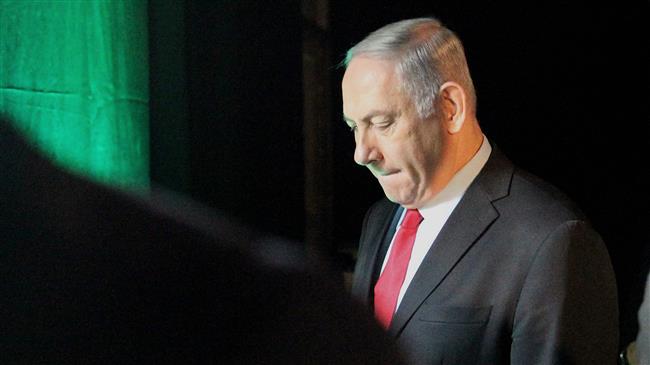Israel’s Benjamin Netanyahu: Going, going, gone
Israel’s president has tapped opposition leader Yair Lapid to form a new government on Wednesday – a step that could lead to the end of the lengthy rule of Prime Minister Benjamin Netanyahu.
President Reuven Rivlin announced his decision on live television a day after Netanyahu failed to cobble together a governing coalition by a midnight deadline.
Rivlin spent the day consulting with all of the parties elected to Israel’s parliament and announced late Wednesday that he believes Lapid has the best chance of forming a coalition.
“I have spoken to Yair Lapid and told him I am giving him the (28-day) mandate,” President Reuven Rivlin said in a televised address, adding that it was clear that the centrist former television anchor “has the best chance to form a government”, having the pledged support of 56 of parliament’s 120 members, still short of a majority.
Lapid, whose late father was a Cabinet minister and who himself is a veteran journalist and politician, has now four weeks to reach a deal with potential partners.
While Lapid faces a difficult task, he now has the chance to make history by ending the reign of Netanyahu, Israel’s longest-serving prime minister. Netanyahu, 71, has held the post for a total of 15 years, including the past 12.
Netanyahu’s political future was thrown into question when he failed to assemble a ruling coalition in the four weeks allotted to him. That raised the possibility that his 12-year run as Prime Minister – the longest in Israeli history – could soon come to an end. It follows more than two years of political paralysis.
“It looks like, perhaps within a few days or a few weeks, we might have a functioning coalition that will not include Mr. Netanyahu. This will be a ground-breaking change,” said Yohanan Plesner, president of the Israel Democracy Institute, an independent think tank.
Fifth election still ‘a real possibility’
He acknowledged, however, that “a fifth consecutive election is still, unfortunately, a real possibility.”
President Reuven Rivlin, who occupies a mostly ceremonial role, had met earlier with the two main candidates for forming a government – opposition leader Yair Lapid and Naftali Bennett, a former Netanyahu ally – and asked the parties to make their positions known by early afternoon.
The last election, which was held on March 23, ended in deadlock for the fourth consecutive time in the past two years. Despite repeated meetings with many of his rivals and unprecedented outreach to the leader of a small Islamist Arab party, Netanyahu was unable to close a deal.
Rivlin gave Netanyahu the first chance to form a coalition after 52 members of parliament endorsed him as prime minister last month. That was short of a majority, but the highest number for any party leader.
During Wednesday’s consultations, the 52-member pro-Netanyahu bloc asked Rivlin not to give another candidate a chance to form a government and instead send the matter directly to parliament.
In an earlier statement, Likud had claimed there was no viable combination for an alternative coalition and that prolonging the negotiating process was a waste of time. Moving straight to parliament, it said, “will save another period of uncertainty for the state of Israel.”
Sharing PM’s seat?
Lapid has said he is ready to share the prime minister’s seat, with Bennett serving first in a rotation. But they have not reached any firm agreement. The parties opposed to Netanyahu represent a wide range of conflicting ideologies, making it unclear whether they will be able to unite.
“Players from the right wing, from the centre, and from the left will have to build a common agenda,” Plesner said. “Their strong driving force would be to stay in government to ensure that Netanyahu is out and that the affairs of state are properly run.”
Netanyahu has become a divisive figure in Israeli politics, with the last four elections all seen as a referendum on his rule. He has been desperate to remain in office while he stands trial, using his position to lash out at prosecutors and seek possible immunity from prosecution.
Netanyahu has been charged with fraud, breach of trust and bribery in a series of scandals. The trial has moved into the witness phase, with embarrassing testimony accusing him of trading favours with a powerful media mogul. Netanyahu denies the charges, accusing law enforcement, the judiciary and the media of waging a “witch hunt” against him.
(FRANCE 24 with AP, AFP & REUTERS)





